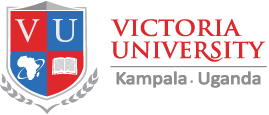Quick Facts
Credential
Diploma
Delivery Options:
Both On-Campus and Online - Some of your Classes will be in-person, on campus and some will be done online.
Duration: 2 years
With a typical full-time course load, this programme will take 2 years to complete.
Language of instruction
english
Admission Requirements
Direct Entry
UCE & UACE Certificate with 2 Principal Passes. (Ugandans).
KCSE holders must have a minimum grade of C+ and above. OR ACE, GCE or A-level applicants must have at least 2 principal passes or its equivalent. (Kenyans).
TCE & TACE Certificate with at least 2 Principal Passes. (Tanzanians).
Qualifications that are recognized for University entry in their respective countries, these will always be vetted by the NCHE. (Other Nationals).
Diploma
Related Diploma from a recognized institution of Higher Learning.
Mature Age
Candidates must be 25 years of age and above and must have sat entry exams from a recognized centre. NCHE recognizes the following institutions’ mature age examinations in Uganda:
The eligible candidate must have got two principal passes at ‘A’ level in relevant subjects and studies.
5 passes at ‘O’ Level.
They should have been obtained at the same sitting not consecutive sittings.
Applicants whose first language is not English will be required to demonstrate a proficiency in the English language by passing an English proficiency Test conducted by the University.
What you will Learn
When you successfully completes the course you will have achieved the following Course Learning Outcomes:
You will be able to demonstrate an understanding of the latest technologies and their applications in the field of media and communication studies (including journalism, broadcasting, advertising, public relations, applied communication and new media).
You will be able to demonstrate an ability to be self-starters and self-motivators in a highly competitive employment market place.
You will be able to familiarize yourself with the skills and techniques to excel as journalist and media professionals.
Improve students competitive advantage by preparing them for a career in communication and also support them in this endeavor as a university and department.
Career Opportunities
A Diploma in Journalism and Media Studies can open up a wide range of exciting career opportunities in the dynamic field of media and journalism. As a journalism graduate, you will possess the necessary skills and knowledge to work in various roles in traditional and digital media, communication, and related fields. Some potential career opportunities with a Diploma in Journalism and Media Studies include:
Journalist: You can work as a reporter, correspondent, or news anchor for print, broadcast, or online media outlets. You will gather news, conduct interviews, write news stories, and report on current events, politics, sports, entertainment, and other topics.
Editor: You can work as an editor for newspapers, magazines, websites, or other media organizations. You will review and revise articles, ensure accuracy, grammar, and style, and coordinate with writers, reporters, and other editorial staff.
Content Creator: With the rise of digital media, you can work as a content creator, producing engaging and compelling content for websites, blogs, social media, and other online platforms. This may include writing articles, creating videos, producing podcasts, or managing social media accounts.
Public Relations Specialist: You can work in public relations and communications, helping organizations manage their public image, reputation, and communication strategies. This may involve creating press releases, crafting media campaigns, managing social media accounts, and coordinating with journalists and media outlets.
Freelance Journalist: You can work as a freelance journalist, contributing articles, features, or stories to different media outlets on a project basis. This allows for flexibility and the opportunity to work with various publications or organizations.
News Producer: You can work as a news producer, overseeing the production and presentation of news content for television, radio, or online media. This may involve coordinating with reporters, anchors, and other production staff, editing news scripts, and managing newsroom operations.
Media Researcher: You can work as a media researcher, conducting in-depth research on news topics, trends, and issues. This may involve analyzing data, conducting interviews, and producing reports or analysis for media organizations, think tanks, or research institutions.
Media Consultant: You can work as a media consultant, providing strategic advice and guidance to media organizations, businesses, or government agencies on media relations, crisis management, and communication strategies.
Photojournalist: You can work as a photojournalist, capturing compelling images that tell news stories visually for print, online, or broadcast media outlets. This may involve covering events, capturing candid moments, and editing and enhancing photos for publication.
Broadcast Journalist: You can work as a broadcast journalist, reporting and presenting news stories for television or radio. This may involve conducting interviews, writing news scripts, and delivering news reports on air.
Tuition & Fees
The tuition and fee amounts are estimates based on current academic year's rates. For financial planning purposes, please use these totals as an approximate estimate of your costs. Actual fees may vary by term and enrolment activities.
Download
